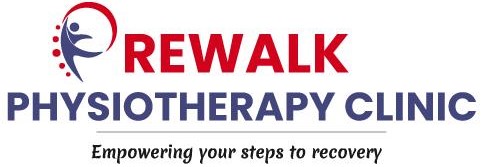Introduction to Prenatal Physiotherapy and Its Increasing Popularity
Waiting for a little one? Prenatal physiotherapy might be your best friend. It’s getting super popular these days, and for good reasons. Not only does it help with those pesky body aches, but it also gives you mental and emotional boosts. Expectant mothers often rave about how much better they feel overall. In a world where pregnancy can be as demanding as it is beautiful, having the right support is crucial. Think of prenatal physiotherapy as a holistic approach to helping you feel your best.
Understanding the Essentials: The Urgency and Timing
Definition and Defining Scope of Prenatal Physiotherapy
So, what exactly is prenatal physiotherapy? It’s a set of exercises and therapies specially designed for pregnant women. They aim to make the body flexible and relieve common pregnancy pains. Think gentle stretches, breathing exercises, and posture corrections. These practices can keep you comfy as you progress in your pregnancy.
When to Start—Early, Mid, or Late Pregnancy?
Wondering when to kick-start this journey? It’s a great question. Some women start as soon as they find out they’re pregnant to prepare their bodies early. Others might begin in the second trimester once they’re feeling more settled and steady. If you start later, don’t worry, you can still enjoy the benefits.
Factors to consider include: – Your current health: Are you feeling well enough to start exercises? – Your doctor’s advice: Always run it by your healthcare provider. – Comfort level: Trust your gut on when you feel ready.
Importance of Personalized Plans and Doctor Consultations
Remember, every pregnancy is unique. A personalized plan can make all the difference. Speak with your doctor or a physiotherapist. They will guide you on the best exercises tailored for you. This consultation ensures you’re on a safe track and helps avoid activities that might not be suitable for your condition.
Address the Immediate Benefits Like Reduced Aches and Relaxed Body
Starting prenatal physiotherapy brings immediate perks. Many moms-to-be say goodbye to nagging backaches and welcome a more relaxed state. Gentle stretches can ease muscle tension and improve circulation. All these adjustments prepare your body for childbirth. Taking care of yourself while pregnant can pave the way for a smoother delivery and recovery.
Unveiling the Benefits: From Pain Relief to Labor Ease
Detailed Benefits Such as Back Pain Relief and Enhanced Flexibility
Pregnancy can bring along some not-so-great physical changes, like back pain. Here’s where the benefits of prenatal physiotherapy come into play. Imagine less discomfort as you go about your daily tasks. Exercises targeted at your back and core can ease these pains, making your pregnancy more enjoyable.
- Flexibility: Regular sessions help your body stay limber. You’ll feel more at ease bending and moving.
- Balance: As your belly grows, maintaining balance can be tricky. These exercises keep everything well-aligned.
How Prenatal Physiotherapy Aids in Labor Preparation and Postnatal Recovery
Preparing for labor can be nerve-wracking, but prenatal physiotherapy can help. It can really make a difference when it comes to delivery.
- Breathing techniques: Learn how to use deep, calming breaths.
- Pelvic floor strengthening: These exercises help support the additional weight and prepare muscles used in childbirth.
After birth, recovery is another area where it shines. You’ll have learned ways to ease muscle soreness and begin gentle strengthening right after.
Specific Physiotherapy Exercises Focusing on Pelvic Floor Strengthening, Relaxation Techniques, and Mental Well-being
Some popular prenatal physiotherapy exercises include:
- Pelvic tilts: Great for reducing back pain and strengthening your core.
- Bridging: Helps strengthen your buttocks and back.
- Breathing exercises: Benefit both physical and mental health.
Mixing these exercises gives you a peaceful mind and a strong body.
Dispelling Myths: Ensuring Safety and Effectiveness for Pregnant Women
Some myths suggest exercising during pregnancy isn’t safe. That’s far from reality. Under guidance, it’s very beneficial. Prenatal physiotherapy for pain relief is often softer than intense workouts and focuses on preparing the body gently.
Prenatal physiotherapy at home has made it easier than ever to practice safely and comfortably.
Experiencing Physiotherapy: A Glimpse into Sessions
First Session Walkthrough: Assessments, Physical Exams, and Pain Evaluation
What’s a first session like? It’s all about understanding you and your pregnancy.
- Assessments: They check your current posture and aches.
- Physical exams: Confirm exercises that suit your body.
Tailored Physiotherapy Plans Engaging Core, Posture, and Mobility Exercises
Your physiotherapist will create a plan focusing on important areas like core strength and posture. Each session is designed to cater to ongoing needs and make sure everything moves smoothly.
Guidance on At-home Physiotherapy Routines
Ever heard of prenatal physiotherapy at home? With the right advice, you can easily practice these exercises in your living room. Small sessions regularly can contribute significantly to your well-being.
Role of Physiotherapists and Collaborating with Healthcare Professionals as Needed
Physiotherapists work hand-in-hand with other healthcare providers. They make sure everything works in harmony. They offer guidance and adjust needs based on medical advice. Their collaborative approach ensures you get comprehensive care while expecting your little one.
Starting your journey with prenatal physiotherapy can be an empowering decision as you prepare for motherhood. Knowing how prenatal physiotherapy helps relieves you from discomfort, prepares you for labor, and supports your physical and emotional well-being. Every step you take now lays the groundwork for a healthier, happier motherhood experience.
Prenatal physiotherapy is an essential part of maintaining a healthy pregnancy, helping to alleviate common discomforts like back pain, pelvic pressure, and poor posture. Starting physiotherapy at the right time can improve flexibility, strengthen muscles, and prepare the body for labor.
At Rewalk Physiotherapy Clinic, our expert physiotherapists specialize in prenatal care, offering personalized sessions that support your physical well-being throughout pregnancy.
Consult Rewalk Physiotherapy Clinic today to create a tailored plan that enhances your comfort and prepares you for a smoother, healthier pregnancy journey.


